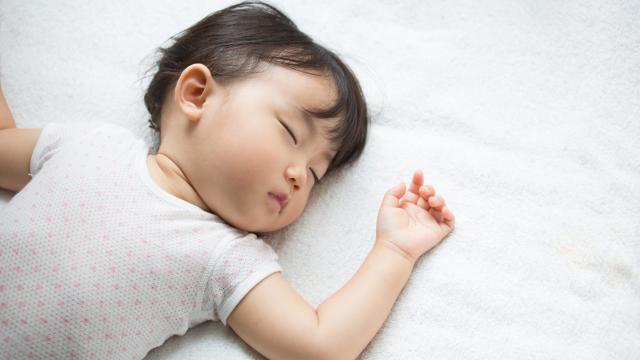Sleep is top of mind for most new parents. They’re not always going to be able to sleep when the baby sleeps, what with all the bottles that need to be cleaned and the laundry that needs to be done, but if they ever want to rest, the baby needs to rest quite a bit, too. Some babies get into a nice, regular sleep groove pretty early on and stay there. And others, well, don’t.
You pull down the room-darkening shades, you set the room at just the right temperature, you wear out a path in the carpet with all the walking and bouncing you do, but still the baby won’t sleep. So maybe, you think, it’s time for a little white noise.
There are lots of white noise and other sound machines (and apps) marketed for getting babies and kids to fall asleep — and stay asleep. But before you reach for the soothing sounds, there are a few things to consider.
Do they work?
Certain sounds are naturally soothing, relaxing, and help promote sleep (rainforest sounds or ocean waves, for example). But white noise, or even something like soft lullaby music, can also serve to block out noises that might be interfering with a child’s sleep, from city noises outside to the sound of older siblings playing in another room.
Many babies will fall asleep faster with white noise playing in the background, and stay asleep longer. In particular, babies who are accustomed to being around a lot of noise or sleeping through noise might find the total silence of nighttime to be a more challenging environment to fall asleep in. Then again, other babies simply won’t like the white noise. If you do decide to (safely) try a sound machine, you may way to start with a free app first to determine whether they’re in the “yay” or “nay” category when it comes to white noise.
The pro
The “pros” of using white noise are pretty obvious and also pretty singular: If your baby is a baby who likes white noise, you’re about to get some better sleep. Whether they need the noise because they simply like it or because it’s blocking out sirens or the screeches of other children, pro-white noise babies are likely to get more and better rest (so you can, too).
However….
The cons
Even if you’re reveling in some better sleep now, if you’re not careful, the white noise usage may create other, more longterm problems. As Healthline reports:
In 2014, the American Academy of Pediatrics (AAP) tested 14 white noise machines designed for infants. They found that all of them exceeded recommended noise limits, which is set at 50 decibels.
In addition to increased hearing problems, the study found that using white noise increased the risk of problems with language and speech development.
Another possible “con” to consider is that if the white noise works particularly well, they may actually become reliant on it in order to fall asleep. If you know they won’t always have access to the sound machine (because they have to nap in a daycare, go to a grandparent’s house to visit overnight, or you know you’ll travel a lot), you may want to consider not risking forming the habit in the first place. As someone who has regularly travelled with a sound machine for her child for this reason for years, I will say it’s a mild inconvenience (and I’ve used an app on a tablet in a pinch), but I do worry we’ve created too much of a reliance on it.
If your baby is sleeping fine without the extra noise, there’s really no reason to introduce a sound machine into the equation. But if you’re all struggling to get adequate sleep and you want to give it a try, follow the advice from the researchers in that AAP study: Keep the volume below the machine’s maximum level and position the machine at least 200 centimeters (about seven feet) away from where your child sleeps to protect their hearing.

Leave a Reply
You must be logged in to post a comment.